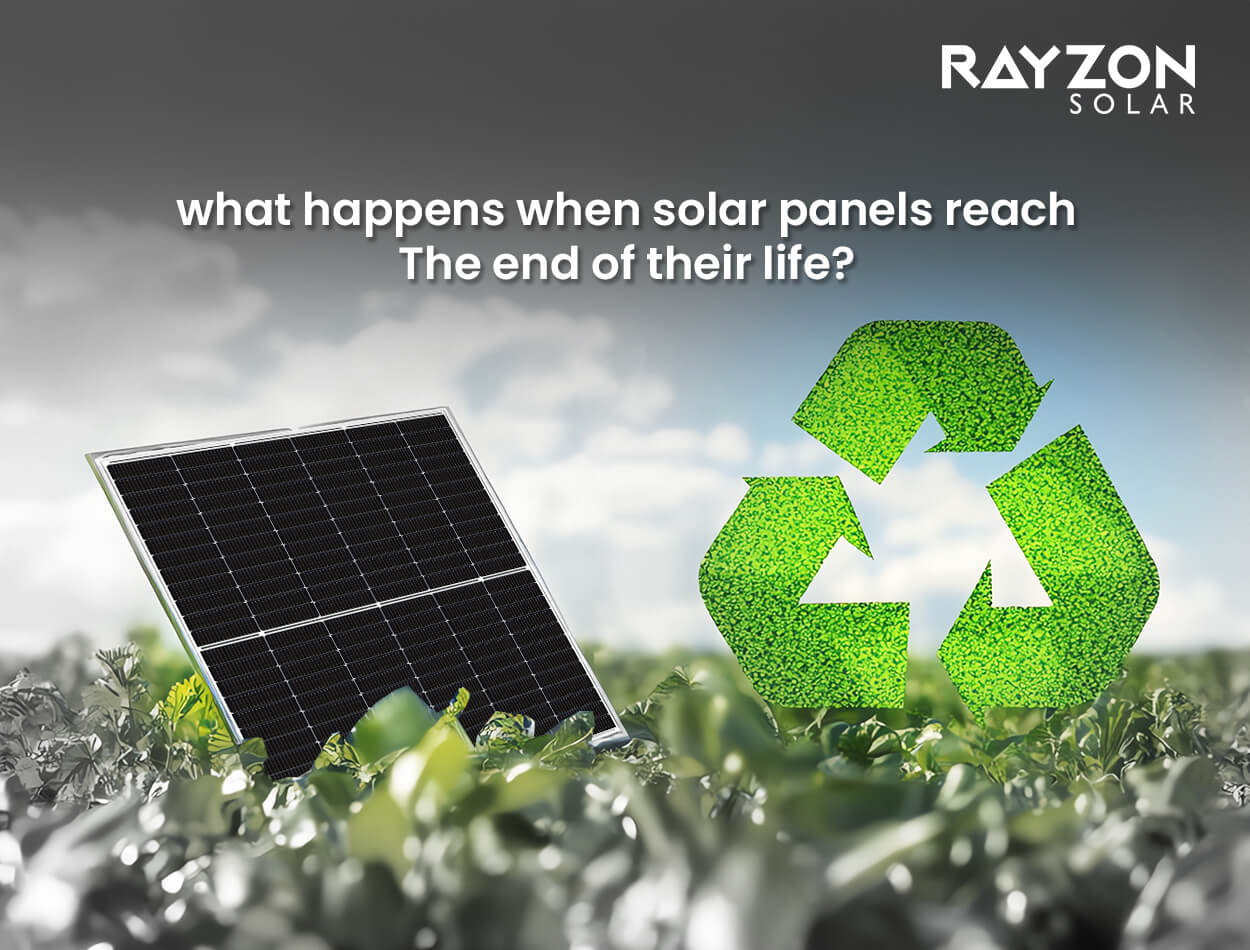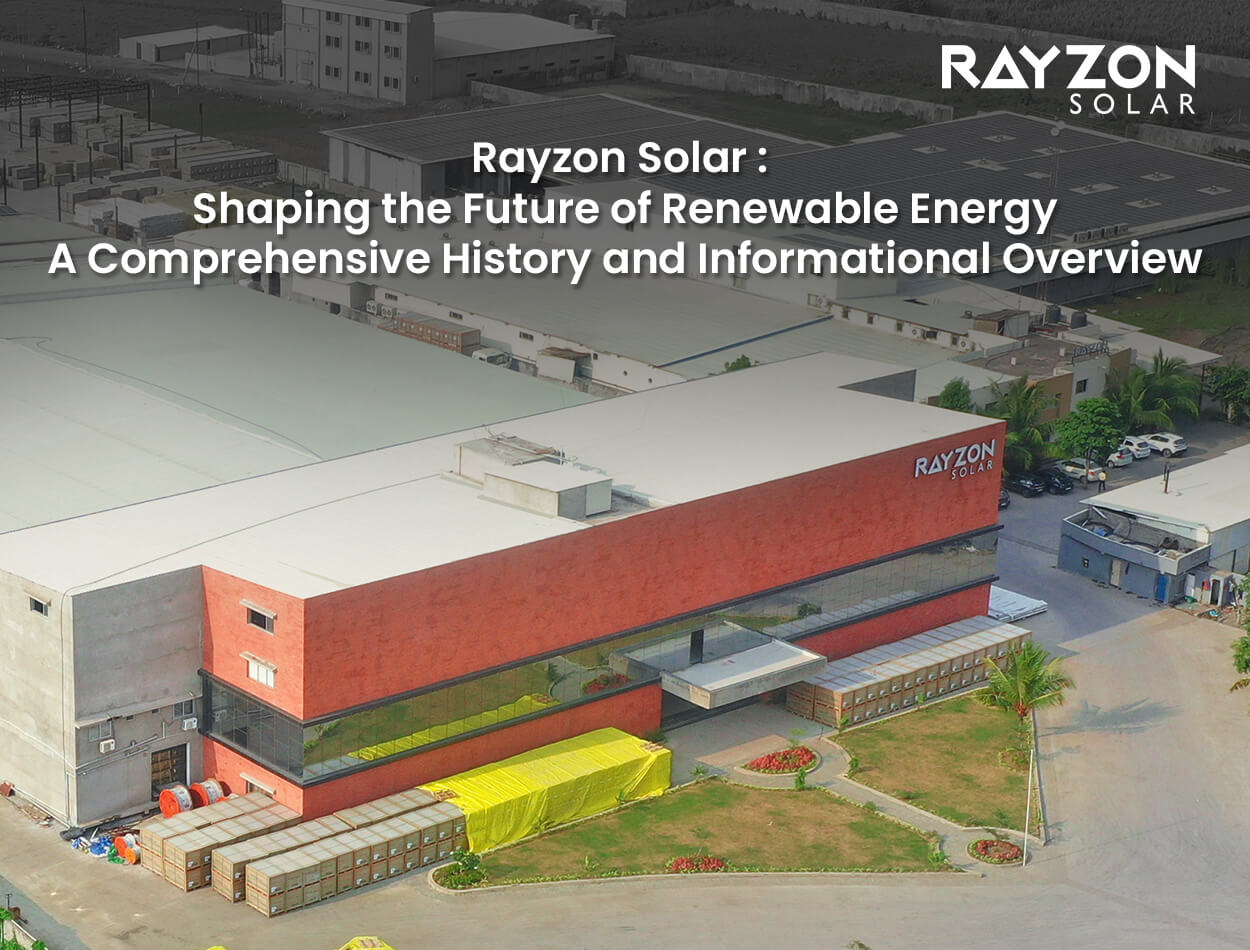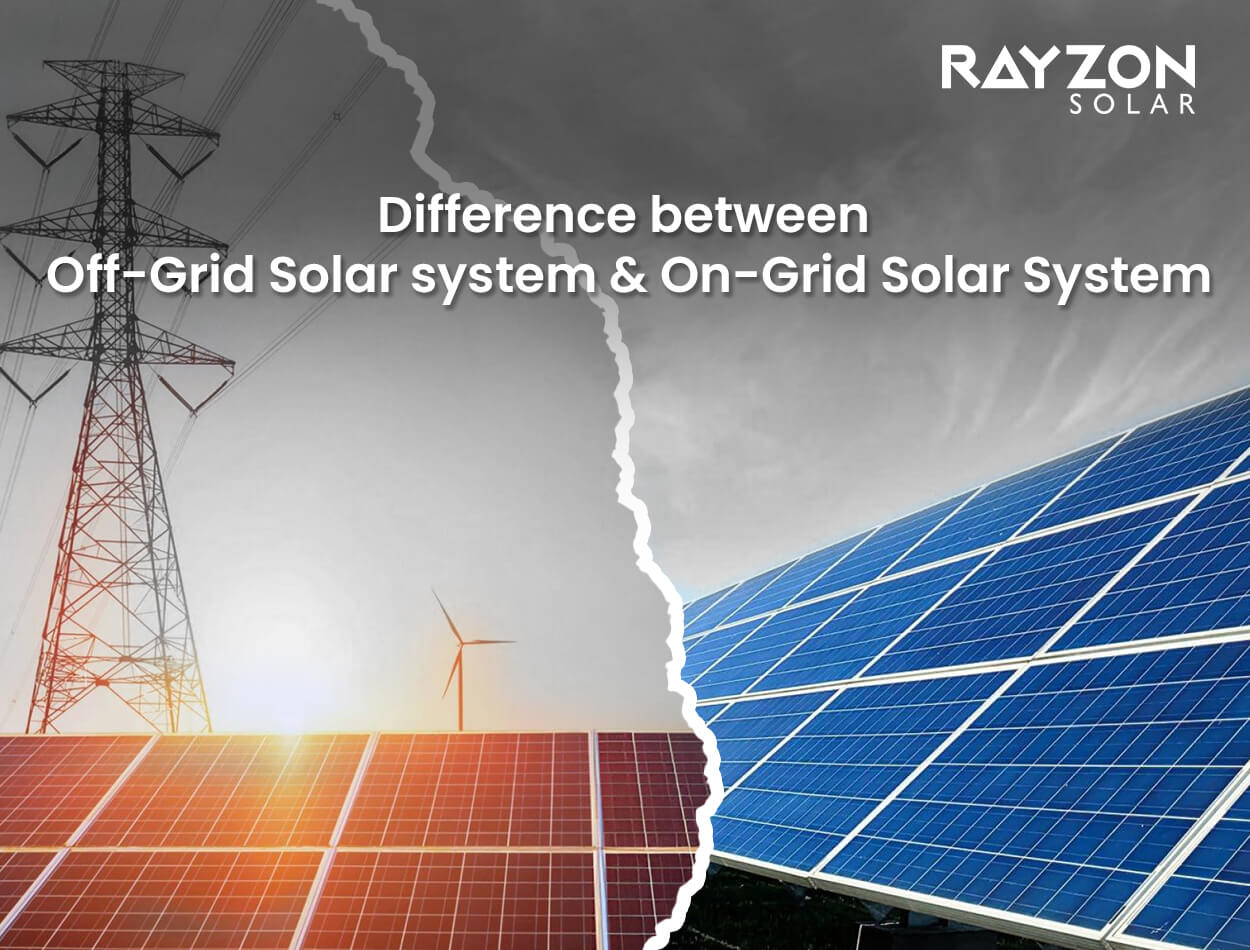
Solar Panel Recycling: What Happens When Panels Reach End of Life?
As the world progressively turns to solar energy to power homes and businesses, the question of what happens when solar panels reach the end of their life cycle becomes ever more related. Solar panel recycling is a critical aspect of the solar energy industry, ensuring that old panels do not end up as waste but are in its place reused or repurposed in environmentally friendly ways. In this comprehensive guide, Rayzon Solar explores the process of solar panel recycling, its importance, and what Rayzon Solar is doing to manage end-of-life solar panels.
Understanding Solar Panel Lifespan
Solar panels, typically made from silicon, glass, and metal, have a lifespan of about 25 to 30 years. Over time, their efficiency decreases, and they may need to be replaced. The increasing number of installations worldwide means that a significant volume of panels will reach their end of life in the coming decades, making effective recycling processes crucial. The aging of solar panels brings about challenges that necessitate advanced recycling techniques to ensure environmental sustainability and resource conservation.
Why Solar Panel Recycling is Important
1. Environmental Protection:
Recycling prevents hazardous materials like cadmium and lead, found in some types of solar panels, from contaminating soil and water. These toxic substances, if not managed properly, can lead to significant environmental degradation, impacting ecosystems and human health. Effective recycling mitigates these risks by safely extracting and processing these materials, thus protecting the environment.
2. Resource Recovery:
Valuable materials such as silicon, silver, and aluminum can be recovered and reused, reducing the need for new raw materials. This not only conserves natural resources but also lowers the energy and costs associated with extracting and processing new materials. By recovering and reusing these materials, we can decrease the ecological footprint of solar panel production and contribute to a more sustainable resource management system.
3. Sustainable Industry Growth:
Recycling supports the sustainability of the solar energy industry by minimizing its environmental footprint and promoting the circular economy. By ensuring that end-of-life panels are responsibly managed, the industry can maintain public trust and support for renewable energy initiatives. This commitment to sustainability helps to reinforce the positive environmental impact of solar energy, ensuring its role as a key player in the transition to renewable energy sources.
The Solar Panel Recycling Process
Recycling solar panels involves several steps to ensure that as many materials as possible are recovered and reused.
1. Collection and Transportation
The first step in the recycling process is the collection of end-of-life panels. These panels are then transported to specialized recycling facilities. Efficient logistics and transportation systems are essential to minimize the carbon footprint associated with the recycling process.
2. Dismantling and Sorting
At the recycling facility, panels are dismantled to separate different components. This typically involves:
- Removing the aluminum frame: The frame is detached and sent for metal recycling. Aluminum is a valuable material that can be recycled indefinitely without losing its properties, making it a critical component of recycling.
- Separation of the glass: The glass, which makes up a significant portion of the panel, is separated and cleaned for reuse. Recycled glass can be used in various applications, including new solar panels, construction materials, and consumer products.
3. Thermal Processing
Thermal processing involves heating the solar cells to high temperatures to remove the encapsulate material (usually a type of plastic) that binds the cells together. This step allows for the extraction of pure silicon and other metals. The use of thermal processing ensures that materials are separated efficiently, with minimal contamination.
4. Chemical Processing
Chemical treatments are used to recover valuable materials like silver and copper from the remaining components. This involves using acids and other chemicals to dissolve the metals, which are then precipitated and purified. Chemical processing techniques are continually being improved to increase recovery rates and reduce environmental impact.
5. Refining and Reuse
The final step is refining the recovered materials to produce raw materials that can be used to manufacture new products, including new solar panels. For instance, the silicon recovered from old panels can be purified and used to produce new photovoltaic cells. This step closes the loop in the recycling process, ensuring that materials are returned to the production cycle.
About Rayzon Solar
Rayzon Solar is a leading solar panel manufacturer renowned for its commitment to sustainability and innovation. The company specializes in producing high-efficiency solar panels designed to maximize energy output and durability. Rayzon Solar integrates advanced technologies and sustainable practices in its manufacturing processes, ensuring minimal environmental impact. Their solar panels are known for their robustness, high performance, and long lifespan, making them a preferred choice for residential, commercial, and industrial applications. By investing in cutting-edge recycling technologies, Rayzon Solar also ensures that end-of-life panels are efficiently processed, promoting a circular economy and supporting the renewable energy industry's growth.
Read More: About Rayzon Solar
Solar Panel Recycling in India
India, a rapidly growing market for solar energy, is also focusing on the development of solar panel recycling infrastructure. The country aims to become a leader in renewable energy, with ambitious targets for solar energy capacity. Rayzon Solar as the best solar panel company in India and other top manufacturers expand their operations, the need for effective recycling solutions becomes more pressing. The growth of the solar industry in India underscores the importance of establishing robust recycling systems to manage the increasing volume of end-of-life panels.
Government Initiatives and Regulations
The Indian government has introduced regulations and guidelines to promote the recycling of solar panels and other electronic waste. These initiatives encourage manufacturers to take responsibility for the entire lifecycle of their products, including end-of-life management. Government policies are crucial in setting standards and providing the framework for sustainable recycling practices.
Technological Innovations
Innovations in recycling technologies are making the process more efficient and cost-effective. For example:
- Laser Separation: Using lasers to separate different materials in solar panels can improve the precision and efficiency of the recycling process. This technology minimizes material loss and increases recovery rates.
- Automated Dismantling: Automation in the dismantling process can reduce labour costs and increase the speed of recycling. Automated systems ensure consistency and accuracy, enhancing overall efficiency.
Read More:- Top Solar Technology Trends of 2024
Conclusion
Solar panel recycling is an essential aspect of the solar energy industry's commitment to sustainability. By effectively recycling end-of-life panels, we can protect the environment, recover valuable resources, and support the continued growth of renewable energy. Rayzon Solar and other top solar manufacturers are setting the standard for responsible recycling practices.
As the solar industry expands, it is crucial to develop and implement efficient recycling processes to handle the growing volume of end-of-life panels. Through technological innovations, supportive policies, and increased consumer awareness, we can ensure that solar energy remains a green and sustainable solution for our energy needs. Solar panel recycling not only addresses the environmental impact of solar energy but also reinforces the industry's role in the global transition to renewable energy sources. The concerted efforts of governments, industries, and consumers are essential to building a sustainable future where renewable energy can thrive without compromising the planet's health.
You Can Also Read: The Environmental Impact of Solar Energy
Additional Resources
For more information on solar panel recycling, please visit the following resources:
- EPA US Environment Protection Agency Solar Panel Recycling Guidance
- Department of Energy Web Page on End-of-Life Management for Solar Photovoltaics.
- EPA Solar Panel Waste webpage.
FAQ’S
This FAQ section provides essential information on solar panel recycling, covering lifespan, recycling processes, environmental impact, and Rayzon Solar's role in promoting sustainable practices.
1. What is the typical lifespan of a solar panel?
Solar panels generally last 25 to 30 years. After this period, their efficiency decreases, and they may need to be replaced or recycled.
2. Why is solar panel recycling important?
Recycling solar panels is crucial for environmental protection, resource recovery, and supporting the sustainable growth of the solar industry by reducing waste and conserving valuable materials.
3. What materials can be recovered from recycled solar panels?
Valuable materials such as silicon, silver, aluminum, and glass can be recovered and reused, reducing the need for new raw materials and minimizing environmental impact.
4. How are solar panels recycled?
The recycling process involves dismantling the panels, separating materials, and using thermal and chemical treatments to recover valuable components like silicon and metals for reuse.
5. Is solar panel recycling mandatory in India?
While solar panel recycling is not yet mandatory across India, the government increasingly promotes recycling through regulations and incentives, encouraging manufacturers to adopt sustainable end-of-life management practices.



